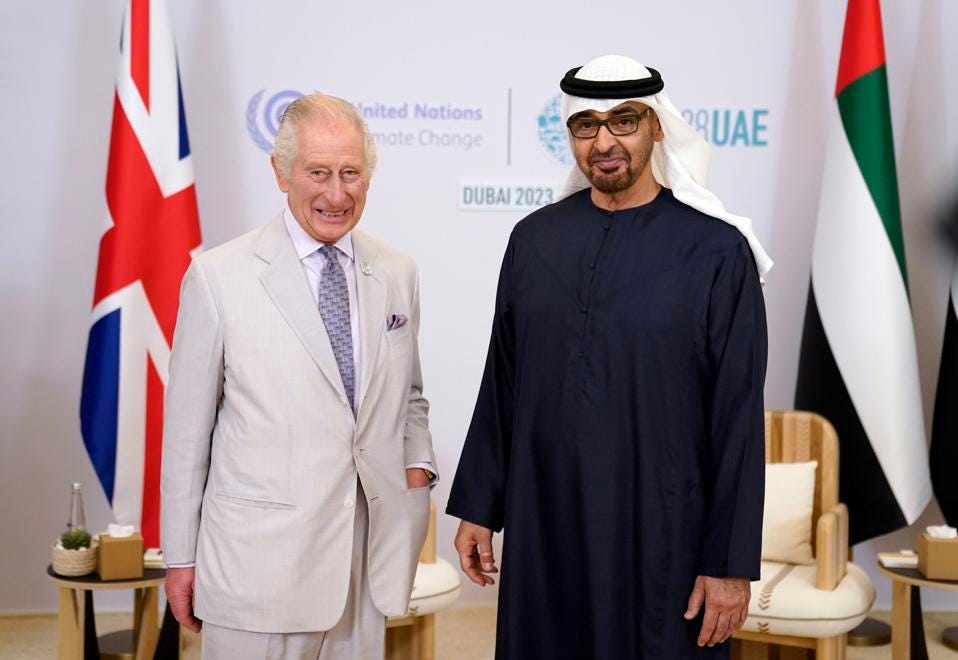DUBAI, UNITED ARAB EMIRATES - NOVEMBER 30: King Charles III meets with Mohammed bin Zayed Al Nahyan President of the United Arab Emirates at a bilateral meeting at Expo City in Dubai, during the Cop28 summit on November 30, 2023 in Dubai, United Arab Emirates. The King is visiting Dubai to attend COP28 UAE, the United Nation's Climate Change Conference. (Photo by Andrew Matthews - Pool/Getty Images)
As the UN convenes its COP28 Conference in Dubai, amid the conclusion of another year during which the global community used record amounts of coal, oil and natural gas, concerns are mounting about the future direction and prospects for success of the energy transition.
Much of the concern centers on the rising cost of capital and whether the world can even afford the stunning price tag of the transition. Cost estimates range from $110 trillion (per the Energy Transitions Commission) to $275 trillion (McKinsey & Co.), the latter of which represents roughly 2.6 times total global GDP for 2023. Global consultancy Deloitte pegs its estimate in the mid-range at roughly $5-$7 trillion per year through 2050.
These are truly mindboggling numbers, the magnitude of which the average person has a difficult time digesting. Even the smaller estimate amounts to about $3.5 trillion annual investment from 2023 through 2050. For some context, the U.S. Inflation Reduction Act contained about $369 billion in subsidies and tax breaks for green energy investments over a 10-year time, or about 1/90th of the total global investment required during that time frame according to the estimate by the Energy Transitions Committee. It would take almost 250 IRA-sized tranches of money to meet the levels of investment envisioned by McKinsey & Co.’s estimate.
Now, consider that the cost of raising capital has more than doubled since the McKinsey estimate was published in early 2022, and the magnitude of the real problem starts to come clear. The challenges of raising this level of capital, most of which would come from developed nations already mired in near-overwhelming levels of national debt, will be a major topic of discussion at this week’s COP28 conference in Dubai, but solutions will not be easily devised.
Keep reading with a 7-day free trial
Subscribe to David Blackmon's Energy Additions to keep reading this post and get 7 days of free access to the full post archives.


